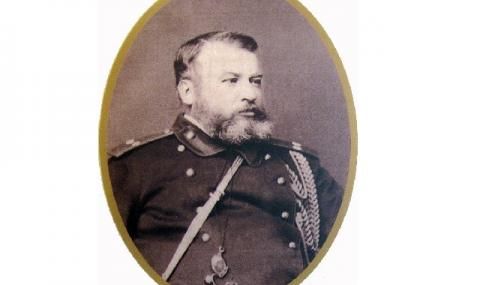On April 27, 1881, Alexander I Battenberg overthrew the liberal government of Petko Karavelov and dissolved the National Assembly. He appointed Gen. Casimir Ernrot as prime minister. The general simultaneously performed the functions of military and interior minister. The government was composed of supporters of the monarch. The country was divided into five regions, led by extraordinary commissions.
This step was expected. Since his accession to the throne in 1879, Prince Alexander Battenberg had had strained relations with the Liberal Party, which insisted on the parliamentary system enshrined in the Tarnovo Constitution, at the expense of monarchical power. After two consecutive electoral victories of the liberals and the dissolution of the First Ordinary People's Assembly, however, he was forced to cede power to them in March 1880. His repeated attempts to suspend the constitution did not meet with support from Russia, which had a dominant influence over the Principality. The Russian position changed only after the assassination of Tsar Alexander II by Narodovoltsi in March 1881. The new Russian Tsar, Alexander III, pursued a reactionary policy at home and favored a similar turn of policy in Bulgaria.
A Finn by origin, Casimir Ernrot was born in 1833 in the Siesta estate (present-day Finland) into a wealthy noble family. He graduated from the Cadet Corps and the Nikolaev Military Academy in 1856. He served in the Kursk Infantry Regiment. He took part in the wars in the North Caucasus (1856-1860). He participated in the suppression of the Warsaw Uprising (1861-1863). During the period 1863-1867 he was the commander of the Vitebsk Infantry Regiment. Major General from 1869. During the Russo-Turkish War (1877-1878) Kazimir Ernroth was the commander of the 11th Infantry Division and was promoted to the rank of Lieutenant General (1877), recalls istoria.bg.
After the election of Alexander I Battenberg (1879-1886) as Prince of the Principality of Bulgaria, Gen. Ernroth became his personal advisor and thus became involved in Bulgarian domestic and foreign policy. During the period 1880-1881 he was the Minister of War in the government of Dragan Tsankov. He supported Prince Alexander Battenberg in his ambitions to repeal the Tarnovo Constitution and establish a one-man regime. It was with the help of the Russian general - the Minister of War in the Principality - that the prince prepared a plan for a coup d'état.
On May 11, the requests for extraordinary princely powers for a period of 7 years were publicly announced. A princely decree was also issued to organize military courts against the actions of the opposition. Under the military dictate of the Prime Minister, a Grand National Assembly was convened, in which the prince's supporters gained a majority. It met in Svishtov on July 1, 1881, and in just two hours approved the powers requested by the prince and repealed the Tarnovo Constitution. The Privilege Regime was introduced in the country for a period of 7 years.
On July 1, 1881, Gen. Casimir Ernroth resigned and dissolved the government. Until mid-1882, the prince himself headed the Council of Ministers. He also created a new body - the State Council, which performed the function of a legislative body. The repeal of the Tarnovo Constitution was approved by Russia and its leaders and officials in the Principality. However, the population and the opposition forces declared themselves against the coup and the repeal of the Tarnovo Constitution.
Already in 1881, Gen. Casimir Ernroth left Bulgaria and returned to Russia. There he also held high state positions, being from 1882 to 1888 the deputy secretary of state, and from 1888 to 1891 the secretary of state for Finnish affairs. He retired and retired to Helsinki, Finland, where he died in 1913.
